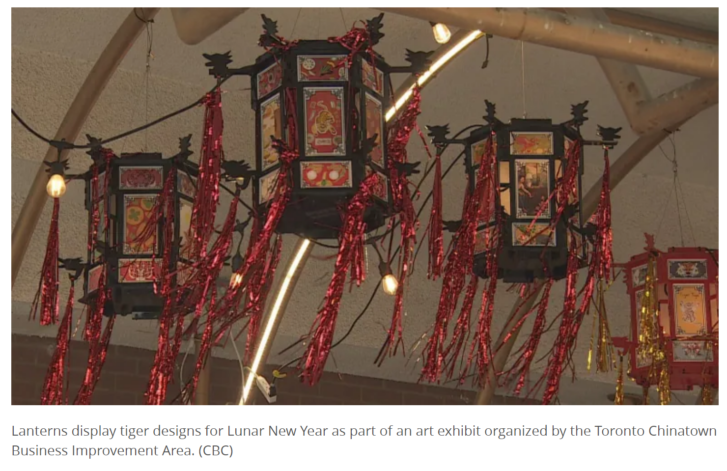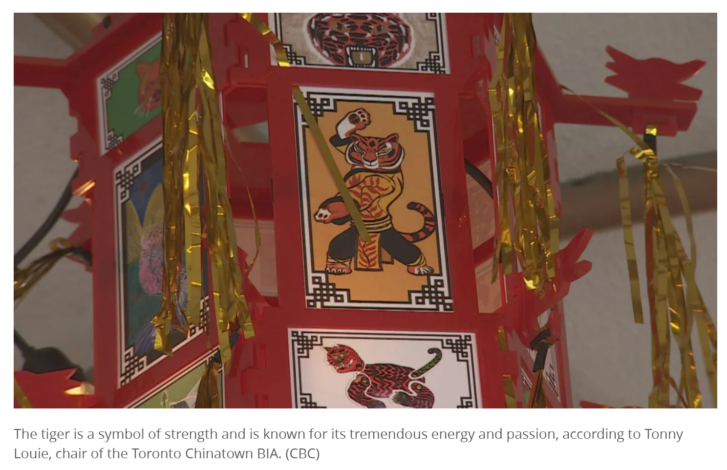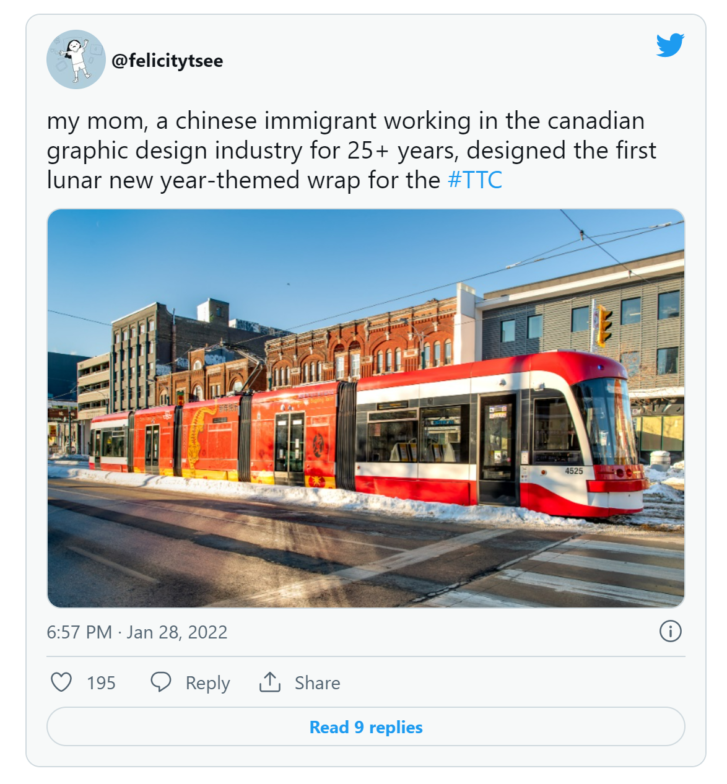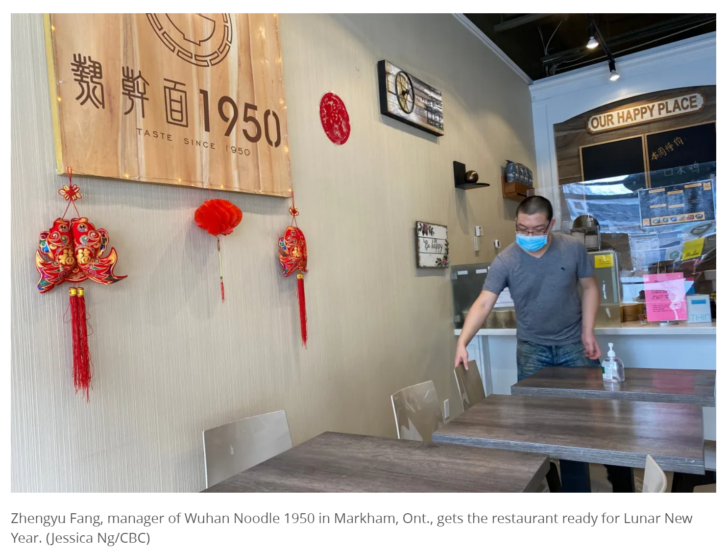Organizers have planned mix of online and live events and hope the new year to bring strength
Asian communities in Toronto are preparing to celebrate the Lunar New Year for a second year in a row under pandemic restrictions.
It’s the Year of the Tiger.

A number of organizations are marking the year through artwork, decorations and cultural events and organizers are hopeful that celebrations next year will be less subdued. This year, there will be a mix of online and live events.
The Lunar New Year in 2022 is on Feb. 1. Every Lunar New Year is named after one of 12 animals in the Chinese zodiac.
The Chinese Cultural Centre of Greater Toronto is preparing a virtual spectacle, complete with traditional singing, music and dancing. The taped event will be livestreamed on Feb. 7 at 8 p.m. on its website.
“I’m really looking forward to an in-person event in 2023,” Alan Lam, chair of the Chinese Cultural Centre of Greater Toronto, said on Monday.
“This year is the Year of Water Tiger, which represents power, courage, confidence and leadership and strength,” he added.
“We’re looking forward to this backdrop to push the pandemic away from us and move forward to a brand new year of 2022.”
The Toronto Chinatown Business Improvement Area, for its part, is partnering with local artists to present the “Yue Moon Lantern Exhibition: Tiger with Wings,” located at the second entrance of Dragon City Mall., 519 Dundas St. W. The art project is the work of 150 people who took part in a community workshop.

Tonny Louie, chair of the Toronto Chinatown BIA, said the tiger is a symbol of strength and is known for its tremendous energy and passion. The community needs that energy and passion and a better year in 2022 because repeated lockdowns and the border shutdown devastated Chinatown, he added.
Forty per cent of business in the city’s Chinatown comes from tourists, Louie said.
“This has been a very difficult year for us,” Louie said. “People are looking forward to a better year. If the tiger comes along and accompanies us for the next 12 months, I think we will be definitely in better shape.”
The Chinatown BIA will also host a live lion dance performance on Feb. 5, from 12 noon to 3 p.m., outdoors in front of Chinatown Centre “to chase away the bad spirits and negativity of last year” and to welcome a new year.
TTC to wrap vehicles with lunar new year designs
Meanwhile, the Toronto Transit Commission is decking out four buses and a streetcar with designs that celebrate the year and messages of good fortune for the year ahead in several Asian languages.
The wrapped vehicles will share messages in such languages as Chinese, Vietnamese, Korean, Thai, Tibetan, Tagalog, Malay, Indonesian and Mongolian.
The vehicles will operate on the following routes: 510 Spadina streetcar, 506 Carlton replacement buses, 25 Don Mills, 39 Finch East and 53 Steeles East.
Shabnum Durrani, head of corporate communications for the TTC, said this year is the first time that the TTC is celebrating lunar new year through vehicle wraps. She said the campaign is part of its action plan on diversity and inclusion.
“One of the reasons we are celebrating lunar new year is we want to do this to make sure that people can very publicly see our commitment and that we also want to take a real stand against anti-Asian hate that’s been occurring lately,” she said.
“The new year, it’s always a chance for new beginnings, a chance for hope. As more and more people get vaccinated, maybe there’s a promise that life will return to normal.”
Brenda Tong, who designed a stamp for Lunar New Year for Canada Post 25 years ago, designed the TTC Lunar New Year streetcar wrap.

At least one Greater Toronto Area restaurateur is enthusiastic about Lunar New Year.
Zhengyu Fang, manager of Wuhan Noodle 1950 in Markham, Ont., has put up lanterns and decorations at his restaurant.
Although Ontario restaurants were allowed to open at 50 per cent capacity on Monday, Fang’s eatery won’t reopen for indoor dining until Tuesday. Fang said he has to reconfigure tables and bring back staff.
Takeout has been brisk, with business at 70 per cent of pre-pandemic levels.

At the start of the pandemic nearly two years ago, however, the restaurant endured a couple of months of anti-Asian phone calls, receiving as many as 10 a day. The hateful calls linked the name of the restaurant to the novel coronavirus, which first surfaced in Wuhan, China. But now, Fang said things are better.
“Lots of local people come here to support us and encourage us to still open the store,” he said. “The community is really, really good and kind.”
Article From: CBC
Author: Jessica Ng, Muriel Draaisma

